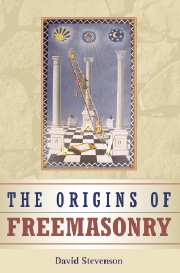Book contents
- Frontmatter
- Contents
- List of plates
- Preface
- List of abbreviations and conventions
- 1 Introduction
- 2 The Medieval contribution
- 3 William Schaw, master of works and general warden
- 4 The Sinelairs of Roslin and the masters of works
- 5 The Renaissance contribution
- 6 Rituals of identification and initiation
- 7 Sir Robert Moray: masonry, symbolism and ethics
- 8 The early Scottish lodges
- 9 Early Scottish and English freemasonry
- Appendix: Early (pre-1710) masonic lodges in Scotland
- Bibliographical note
- Index
- Plate section
5 - The Renaissance contribution
Published online by Cambridge University Press: 06 July 2010
- Frontmatter
- Contents
- List of plates
- Preface
- List of abbreviations and conventions
- 1 Introduction
- 2 The Medieval contribution
- 3 William Schaw, master of works and general warden
- 4 The Sinelairs of Roslin and the masters of works
- 5 The Renaissance contribution
- 6 Rituals of identification and initiation
- 7 Sir Robert Moray: masonry, symbolism and ethics
- 8 The early Scottish lodges
- 9 Early Scottish and English freemasonry
- Appendix: Early (pre-1710) masonic lodges in Scotland
- Bibliographical note
- Index
- Plate section
Summary
Neoplatonism and the occult striving of the late Renaissance
Until relatively recently the aspects of the Renaissance which tended to receive most attention from historians were those which could be seen as ‘progressive’ or ‘modern’, pointing the way ahead to the modern world. The Renaissance may have looked to the past, as the term itself indicates, being a striving for a rebirth based on ancient knowledge, but it looked to the past for the sake of a new future. It involved the partial rejection of one past, indeed, in favour of another one which was seen as providing vastly superior opportunities for the expansion of man's understanding and capacities. Classical philosophy, science and literature were to be revived while the intellectual shackles of the ‘monkish’ and ‘superstitious’ Middle Ages were to be thrown off, opening up a new future for man. What was wrong with this sort of picture of the Renaissance was not what it said but what it failed to say. So far as it went it was accurate, but on its own it gave a highly misleading impression of rationality and modernity of outlook, ignoring central features of the age which seemed irrational and discreditable. In recent decades, however, historians have increasingly realised that Renaissance interest in subjects like astrology, magic and alchemy, and the Neoplatonic philosophy which largely underlay them, should not be dismissed with embarrassment as unfortunate aberrations on the fringes of the Renaissance.
- Type
- Chapter
- Information
- The Origins of FreemasonryScotland's Century, 1590–1710, pp. 77 - 124Publisher: Cambridge University PressPrint publication year: 1988



